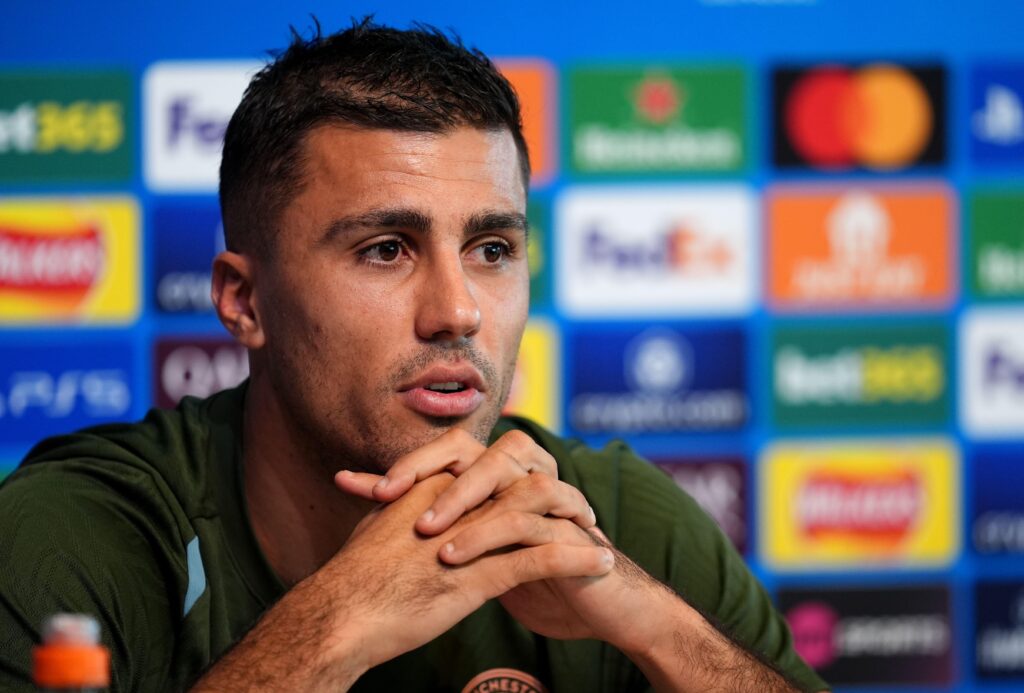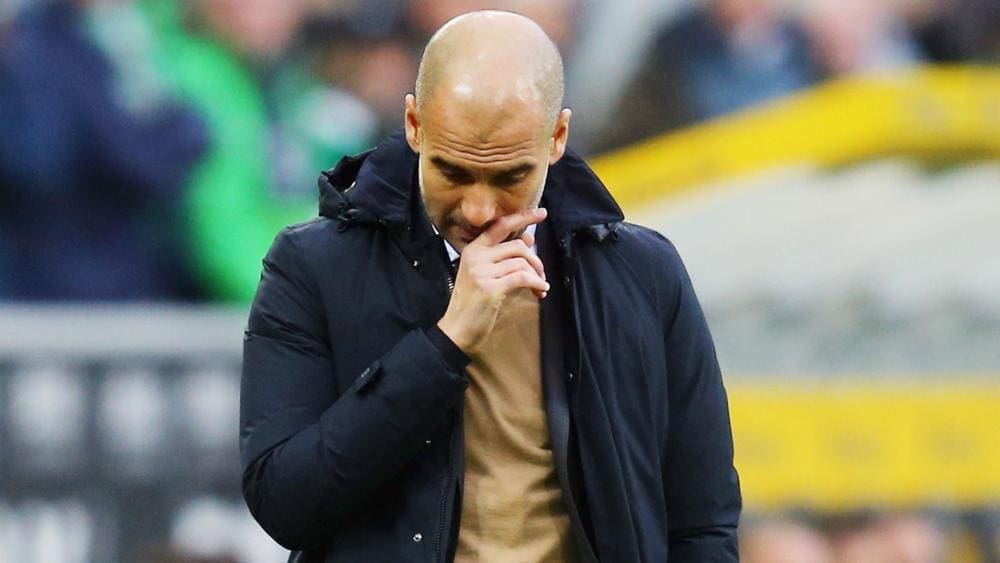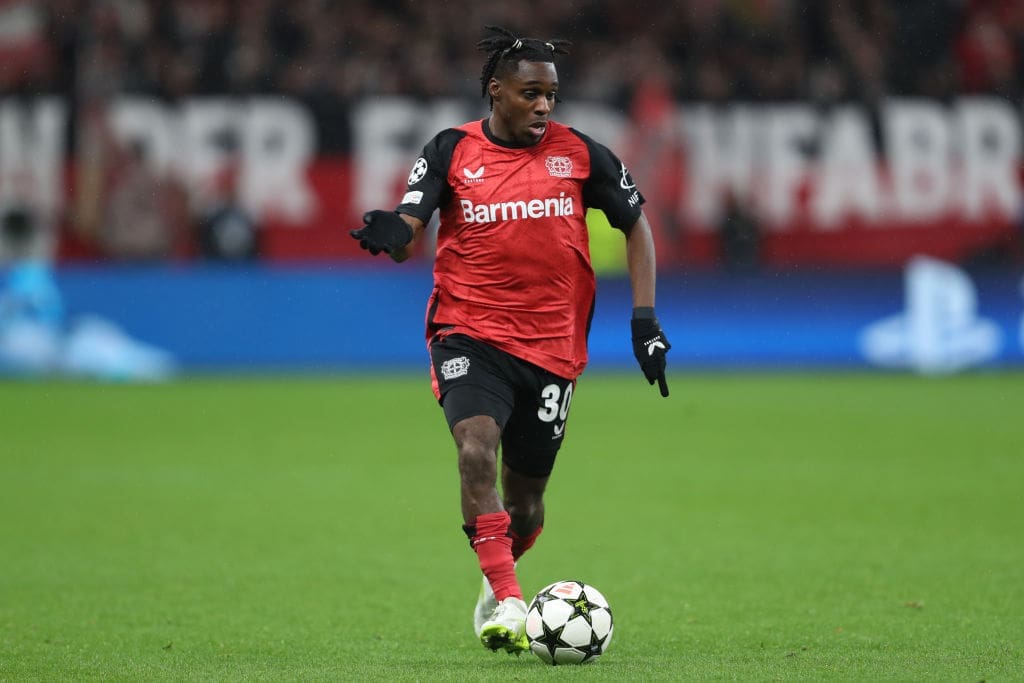Within all 30 team is a pyramid. How's a look at each show's second start.


People have a list of the NBA's top players, but talent and chemistry are both important factors in basketball. There is a hierarchy within each of the 30 league clubs, and how well each of the five players on the court comprehends and acts in its place is equally important as his personal ability.
Essentially, a lineup has its actor, a respectful co-star, a second star who owns his part, a fourth option and a second starter to tie it all together — clear Nos. 1, 2, 3, 4 and 5. In this set, we rank the five best athletes from each level for a broader glance across the group. How near does your team's lineup get to being perfect?
Rankings: No. 1s • No. 2s • No. 3s • No. 4s • No. 5s • Complete
No. 5s: The Fifth Starters
What is a No. 5? The opening lineup is tied up by him. When you have pieced up your four best athletes, what is missing? Ball-handling? Size? On-ball defense? Shooting? Positional diversity? He may not be able to offer it all to you, but he much fill the gaps, or he will get himself replaced immediately. Or in a battalion. He may make more sense in a quintet, even though he may not be as good as the fifth man.
Without more ado, your five best No. 5s...
1. Derrick White, Boston Celtics
The beauty of Boston is that White and backcourt partner Jrue Holiday are identical, and both are excellent two-way people. White averaged a 15-4-5 on 46/40/90 killing cuts and made an All-Defensive team last year, when he received more votes than any other shield not on the All-Star team. He performed so well for the Celtics to win the title that Team USA hired him to take on a similar position in the pursuit of a gold medal.
This is not typical. We should be asking ourselves: Is Light one of the best five starters in league story? Although Danny Ainge, A. C. Green, and Luc Longley have all won numerous finals as second instance in the post-merger age, White belongs in that same conversation. In contrast, the five men of the 1960s Celtics were split equally among the players.
2. Isaiah Hartenstein, Oklahoma City Thunder
A movement that surprised us last period when they won the Eastern Conference's No. needed veteran depth to round out the Thunder's No. Hartenstein and Alex Caruso, two of the league's top part people, were the first grain, so they made a decision to take them. The past has more of a 3-and-D ability than the latter, but Hartenstein does play anywhere and anytime.
Last year, Hartenstein was one of the NBA's best defensive players, guarding the seal and surviving in place, largely because he was able to locate his foe before his opponents. His departure gives an effective offensive repertoire a new dimension despite the limited shooting range of the unusual midrange jumper. His statistics may not reflect his three-year,$ 87 million contract, until you realize OKC is getting this per-36 minutes from its fifth starter: 11.1 points ( 64.4 FG % ), 11.9 rebounds, 3.6 assists, 1.7 steals and 1.6 blocks.
3. Trey Murphy III, New Orleans Eagles
At five place, the Pelicans have a real problem in front of them. Do they have any ties to establishing a standard center? If so, their decision is between Daniel Theis, a rookie, Yves Missi, a freshman, or 2022 second-rounder Karlo Matković. Any of them would probably be one of the league's worst five example. That may be worth saving some miles on Zion Williamson, who could be both too short (6-foot-6 ) and too brittle ( 184 career games in five seasons ) to start at small-ball center.
It could also set the press on Murphy, a fantastic player and would-be wealthy five starter. Murphy is a 6-foot-8 sniper. He does not have to do much more than that — another than defend at a high level— but there is untapped possible in the 24-year-old. Murphy has the ability to attack from the weak side when things go wrong, but the roster structure does n't always let him. And more frequently it does.
The collection of Dejounte Murray, Herb Jones, Murphy, Brandon Ingram and Williamson is an intriguing ( if undersized ) lineup. It is far more talented than one featuring either conventional center, and if we know that any lineup with Theis, Missi or Matković will be unsatisfying, why not tournament groups with small game? ( At least until Ingram's landing pad is found by the Pelicans. ) No team with such talent should always start one of the league's worst second starters, so placing Murphy here is a rally against allotropy.
4. Mike Conley Jr., Minnesota Timberwolves
In February 2023, the Timberwolves needed a place shield another than D'Angelo Russell, who imagines himself no worse than a second option on any team, including his Los Angeles Lakers. Someone who would set playmaking for others before all else was something Minnesota wanted to see in a team that had then excelled. Someone who would agree with Anthony Edwards and establish Rudy Gobert.
So they scored Conley, when a No. The Utah Music are the second All-Star and the second All-Star on the Memphis Grizzlies. He is currently only always asked to pass and defend in ways that bring up both the offense and defense, on the point of his 37th holiday. Even though Conley is n't as quick as he once was, his 5.9 assists per game helped his team to win 56 games last year.
5. Dereck Lively II, Dallas Mavericks
Beautiful should be able to start playing facility for Dallas by the end of the season, regardless of whether Daniel Gafford or Daniel Gafford starts. The 20-year-old's 7-foot-7 wings wrought havoc around the seal, contesting 15.5 pictures per match on one end and finishing a pair of Luka Dončić help on the other. In the Championships, he also demonstrated some shooting collection, and he said he would increase.
The Mavericks had Dončić and Kyrie Irving and firing. What they lacked was a rim-running pick-and-roll lover for Dončić, and they wanted some so bad they tanked a year of their star's playoff occupation to find him. They paid a$ 750, 000 fine for it, and Lively is worth every penny — and then some.
Honorable mentions
6. Chris Paul, San Antonio Spurs
7. Wendell Carter Jr., Orlando Magic
8. Max Strus, Cleveland Cavaliers
9. Dillon Brooks, Houston Rockets
The rest
10. Mark Williams, Charlotte Hornets, 11. Brandin Podziemski, Golden State Warriors, 12. Deandre Ayton, Portland Trail Blazers, 13. Terance Mann, Los Angeles Clippers, 14. Dorian Finney-Smith, Brooklyn Nets, 15. Jusuf Nurkić, Phoenix Suns, 16. Kevin Huerter, Sacramento Kings, 17. Nikola Jović, Miami Heat, 18. Ausar Thompson, Detroit Pistons, 19. Zach Edey, Memphis Grizzlies, 20. Rui Hachimura, Los Angeles Lakers, 21. Kelly Oubre Jr., Philadelphia 76ers, 22. Mitchell Robinson, New York Knicks, 23. Taurean Prince, Milwaukee Bucks, 24. Christian Braun, Denver Nuggets, 25. Aaron Nesmith, Indiana Pacers, 26. Clint Capela, Atlanta Hawks, 27. Patrick Williams, Chicago Bulls, 28. Taylor Hendricks, Utah Jazz, 29. Gradey Dick, Toronto Raptors, 30. Alex Sarr, Washington Wizards.
Copyright Notice:
Datavictory copyrights this specification. No part of this specification may be reproduced in any form or means, without the prior written consent of Datavictory.
Link:



